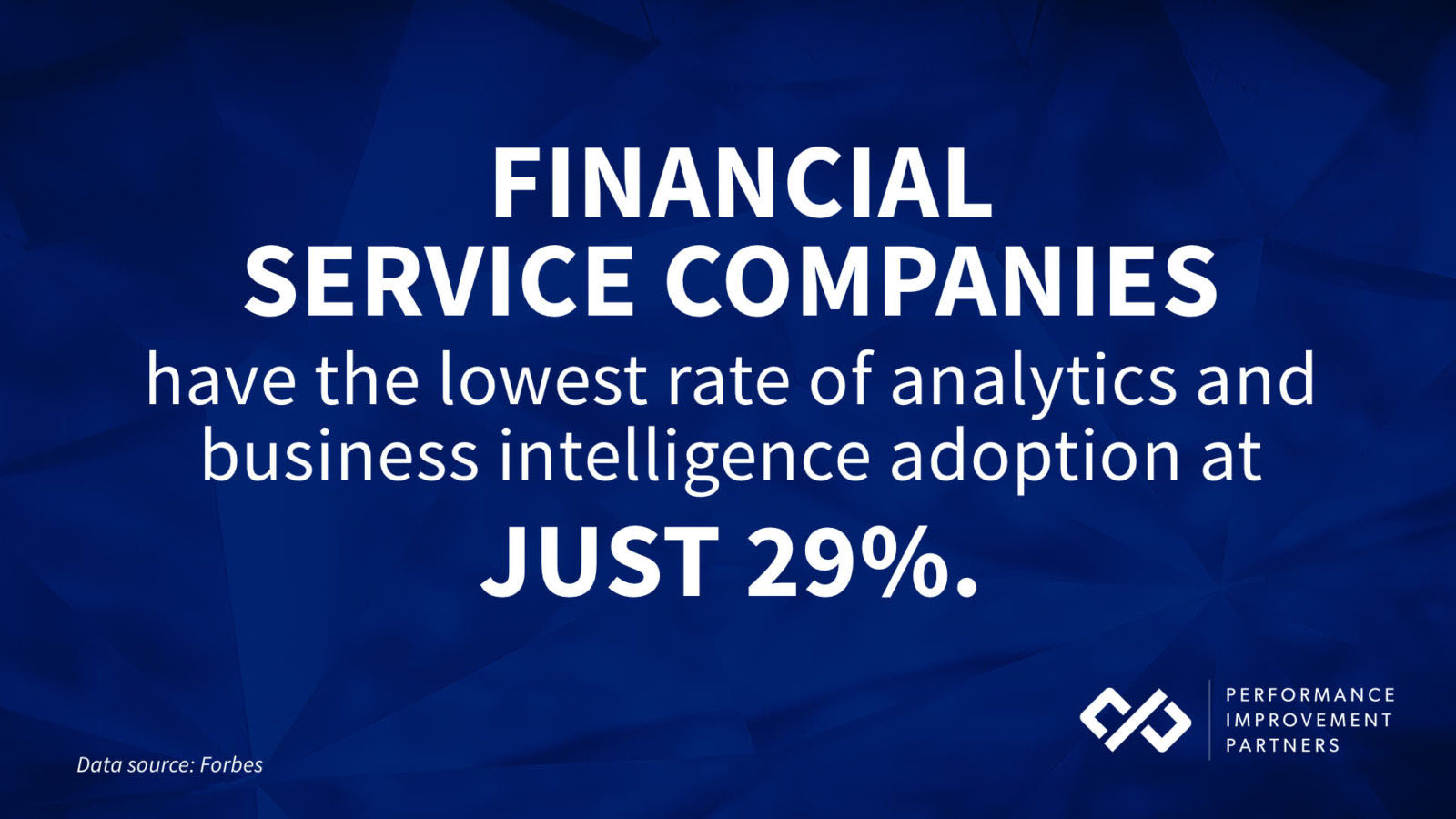“Trust your gut.” It’s advice that holds value in life and business.
Yet, when it comes to making decisions that guide strategic business outcomes — the ones that will make or break a company’s growth — gut feelings alone aren’t enough.
Data Analytics Statistics Proving the Value of Data-Driven Decisions
No matter the decision; any business typically has data assets available to guide the path forward. As the following 55+ data analytics statistics prove, executives know data-driven decision-making leads to lower costs, increased revenue, improved customer experiences, and increased operational efficiencies. Yet, this valuable asset is often untouched and underutilized.
Ready to start activating data to drive value creation and next-level performance?
Below are stats that support just how important data analytics is to driving digital business transformation, and how big data can make — or break — a business in the following areas:
- Lowering costs and increasing revenue through data analytics
- Acquiring and retaining customers with data
- Using data to improve the customer experience
- Driving a data-driven culture
- The benefits of big data
- Growing amounts of data
- Fighting data overload
- The cost of bad data
- Increasing data analytics spend
- Tapping data to drive digital transformation
Data Analytics Leads to Lower Costs and Increased Revenue
- Data-driven companies are 58% more likely to beat revenue goals than those who are not focused on data (Forrester Consulting)
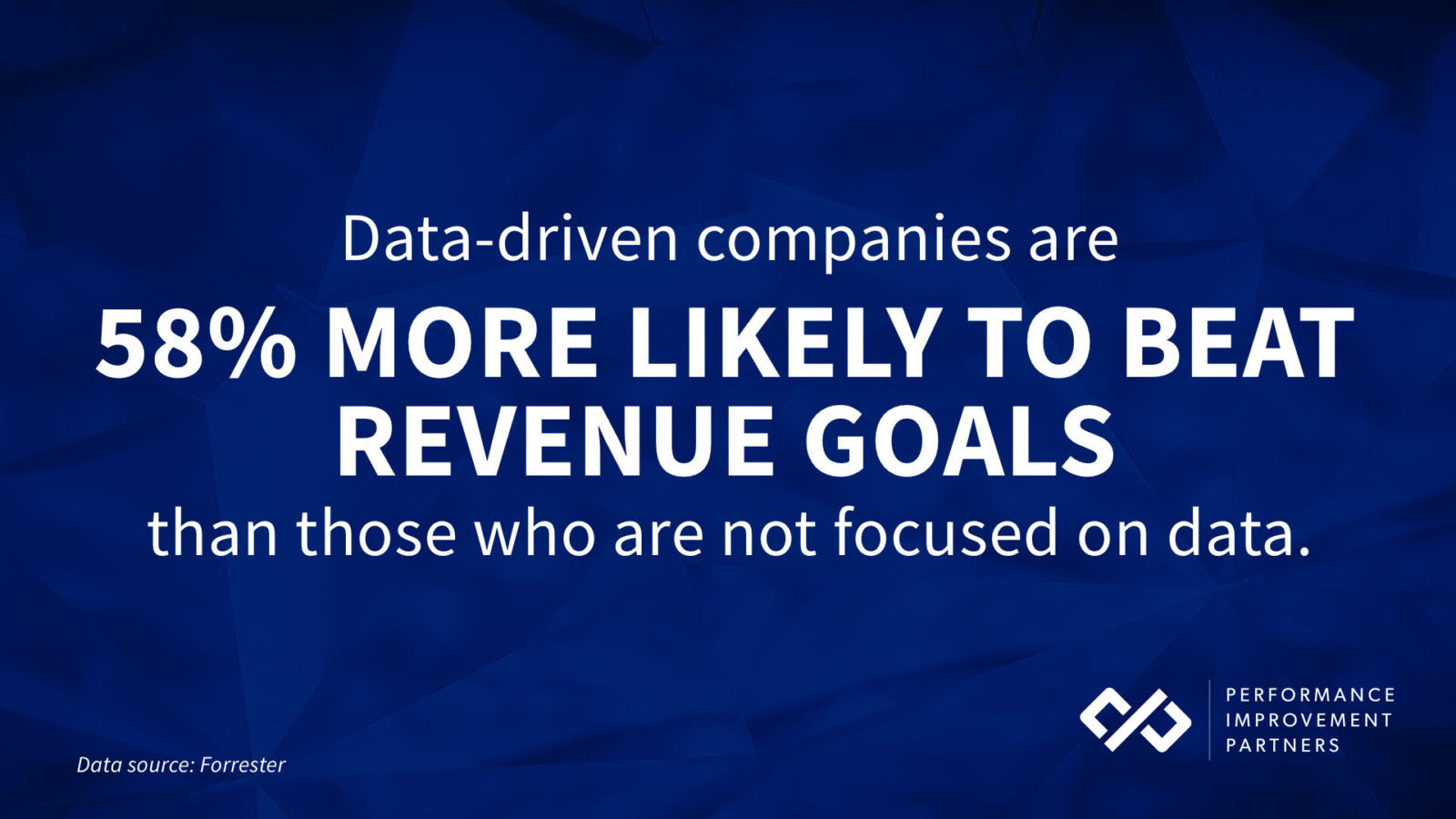
- Companies who place high emphasis on data see an average annual revenue increase of 5.32% due to better data use (Splunk)
- A 10% increase in data usability could increase the average Fortune 1000 company’s revenue by over $2 billion (University of Texas, Austin)
- 62% of retailers report gaining a competitive advantage from information and data analytics (IBM)
- Over two-thirds of enterprise companies who have experimented with big data initiatives have experienced decreased operational costs (Leftronic)
- Businesses who use big data saw a 10% decrease in overall costs (Entrepreneur)
Use data to unlock business growth: Watch the Private Equity data analytics webinar and discover the key levers of success in data-driven value creation.
Data Drives Customer Acquisition and Retention
- Netflix saves over $1 billion per year on customer retention using big data (Lineate)
- 57.1% of executives report big data and AI are beneficial in creating customer self-service capabilities and increasing the speed of new product and service rollouts (MIT Sloan Management Review)
- Data-driven companies are 23 times more likely to acquire customers than their peers (Forbes)
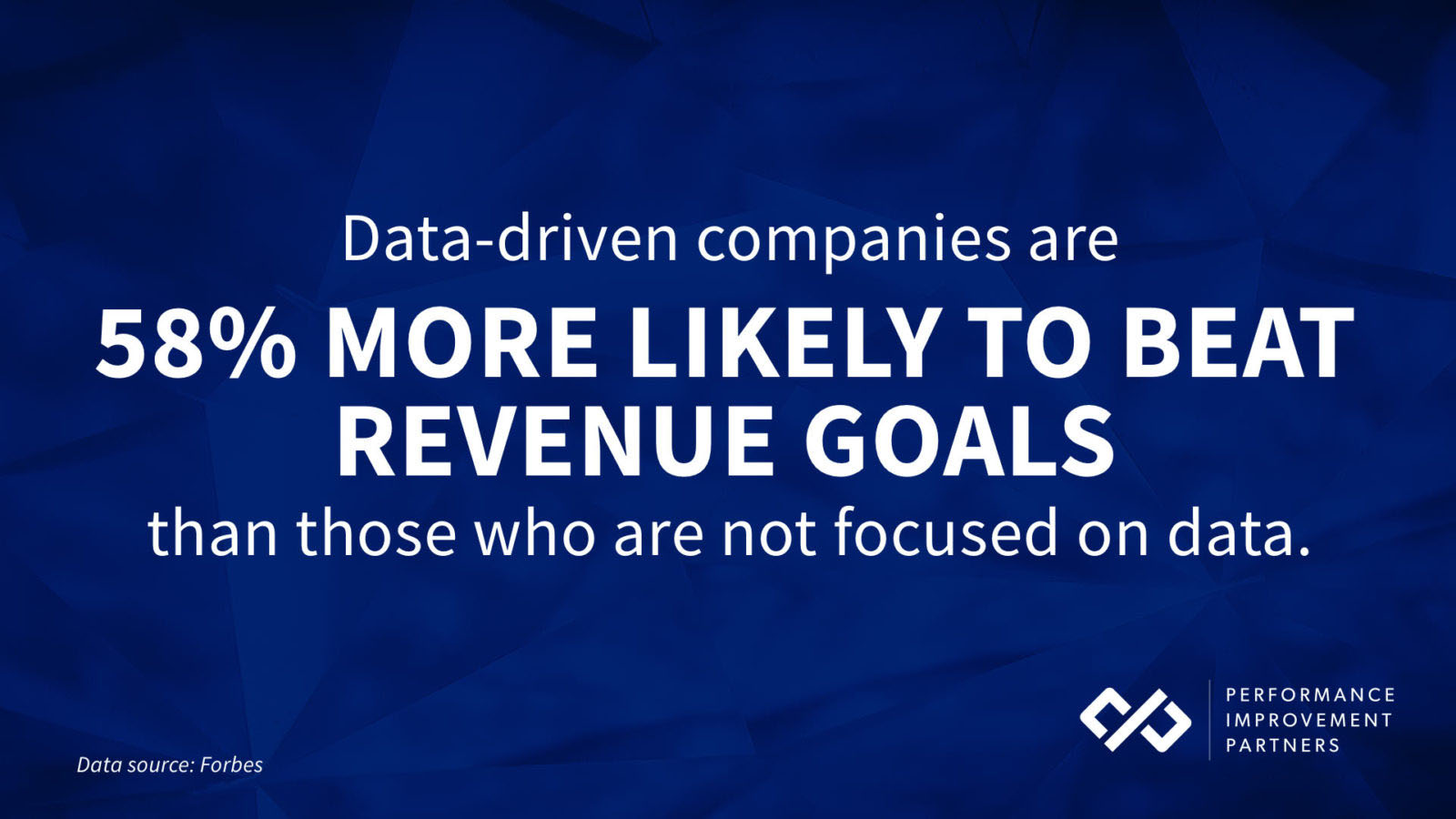
Data analytics is essential in improving the customer experience
- Audience management platforms used to centralize customer data between online and offline channels is a high priority for 81% of companies (Merkle)
- After analyzing 100 million subscribers, Netflix influenced 80% of the content viewed thanks to accurate data insights (Forbes)
- Data stories can relay want your customers want and how they feel. In fact, it’s predicted that data stories will be the most popular method of conveying data insights by 2025 (Gartner via Analytics Insight)
- 88% of major companies ($100MM+) in the US and UK are focused on collecting first-party data due to the demise of third-party cookies as a way to deliver real-time, relevant customer experiences (Merkle)
Achieving a data-driven culture is important – but has its challenges
- 74% of business leaders expect long-term gains in productivity by making data insights available to frontline employees (those providing the first point of contact to customers) (Harvard Business Review)
- Achieving a data-driven culture is one of the top three most important business intelligence trends in 2021 (BI-Survey)
- 87% of business executives say frontline staff – including salesclerks, nurses, maintenance workers, and others in direct contact with customers– need improved insights, driven by technology, to make good “in the moment” decisions (Harvard Business Review)
- Only 24.4% of companies have forged data-driven cultures within their organizations (NewVantage Partners)
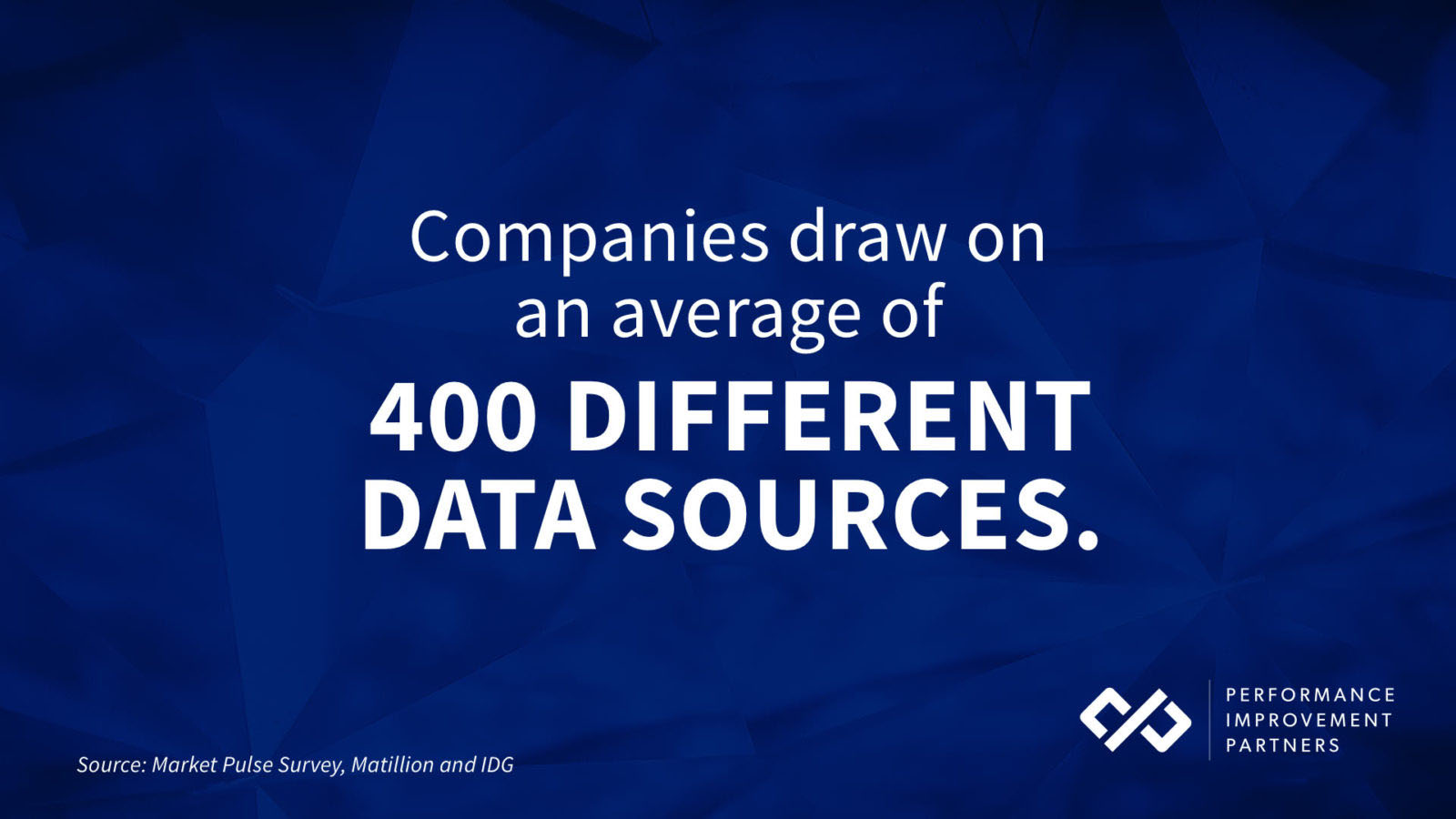
- 40% of executives cite lack of alignment within the organization as a barrier to adopting big data (Harvard Business Review)
- Leading companies identify four key areas: people, process, organization, and change management, as blockers to becoming data-driven organizations (NewVantage Partners)
- Over 23% of analytics challenges are attributed to cultural resistance (Data Driven Investor)
Find out how to drive a data-driven culture in your portfolio with a complimentary data analytics workshop, exclusive to Private Equity firms and their portfolio companies.
The benefits of big data are accelerating its implementation
- Big data helps make better, faster decisions over the competition. In fact, 93% of organization placing high emphasis on data feel this way (Splunk)
- Data-driven decision making matters: McKinsey suggests companies who strategically use consumer behavior insights outperform their peers in sales growth by 85% (Toward Data Science)
- 88% of executives feel urgency to invest in big data and AI, with 75% saying fear of disruption is a motivating factor (Harvard Business Review)
- 92% of senior executives at Fortune 1000 or other industry-leading companies are accelerating their pace of investment in big data and AI (MIT Sloan Management Review)
- Companies who use big data saw profits increase by 8% (Entrepreneur)
- With only 15% of companies showing effective delivery of relevant, reliable customer experiences, investment in big data and analytics can help provide a competitive advantage (Salesforce)
- 79.8% of senior executives report advanced analytics as a benefit to investing in big data and AI (MIT Sloan Management Review)
- More than half (55%) of North American businesses have adopted big data analytics (Forbes)
The amount of data created every day is increasing at an astronomical rate
- The amount of data created per person per day – worldwide – was estimated to be 1.7MB in 2020 (Domo)
- Almost 90% of all data has been created in just the past two years (Kommando Tech)
- Over the next 5 years, unstructured data will account for 80% of all organizations’ data growth (IDC via CIO)
- More than 150 trillion gigabytes of data will need to be analyzed by 2025 (IBM)
- It is predicted that by 2022, 80% of data – globally – will be unstructured (Tech Native)
- In 2018, 2.5 quintillion bytes of data were created by every person every day – and the pace has only been accelerating since then (Forbes)
- The predicted sum of the world’s data is predicted to grow to 175 zettabytes of data by 2025. To keep up with the vast amounts of it, almost 30% of the world’s data will require real-time processing. (Seagate)
Data overload leads to inefficiencies and missed opportunities
- 67% of executives do not feel comfortable accessing or using data with their existing tools and resources (Deloitte)
- 55% of data collected by companies is not used (Priceonomics)
- Data scientists spend upwards of 80% of their time collecting ‘unruly digital data’ and ‘data wrangling’ before said data is useful (The New York Times)
- Up to 50% of employee time is wasted due to dealing with mundane data quality issues (MIT Sloan Management Review)
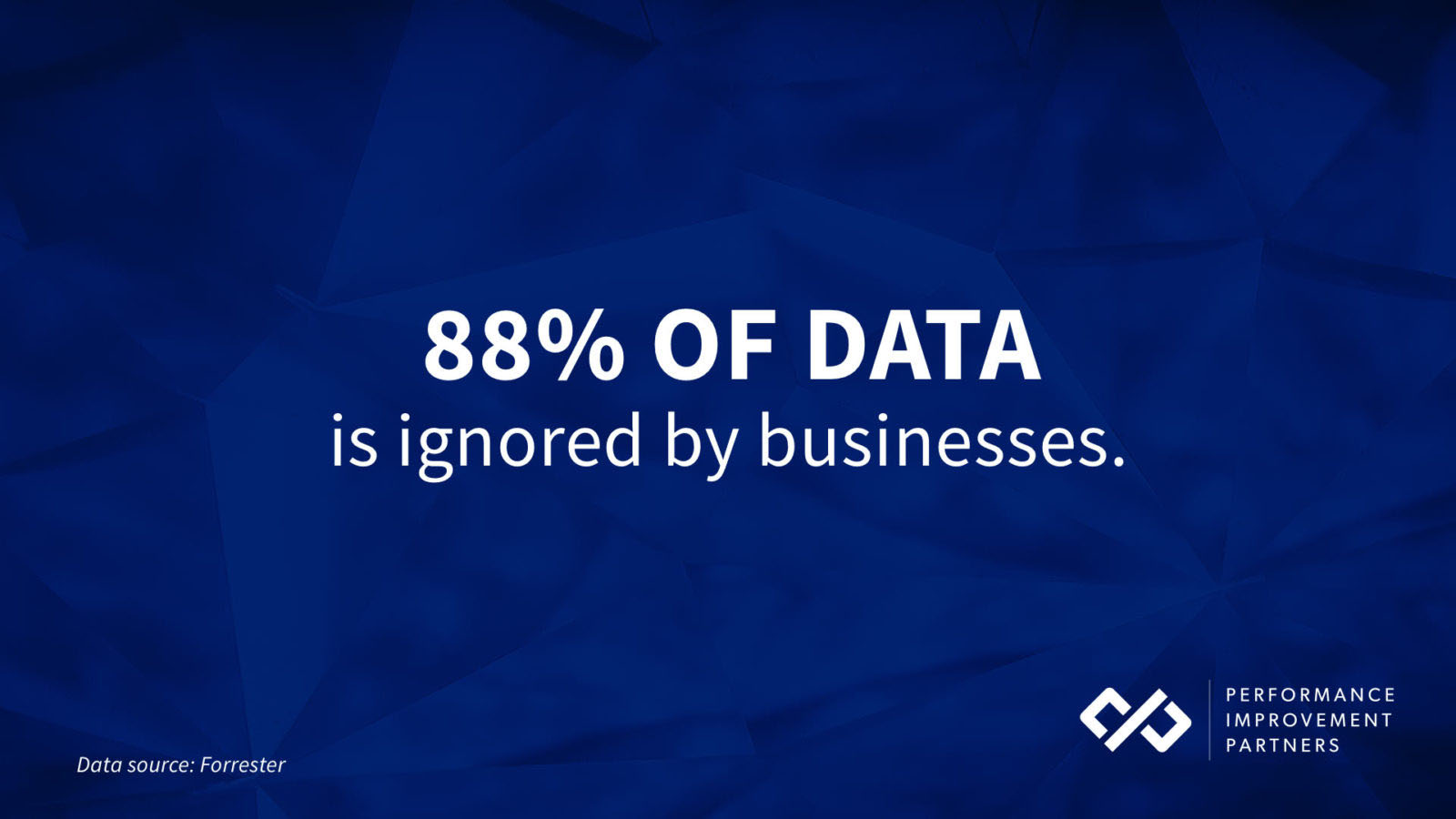
- 88% of data is ignored by businesses (Forrester)
- Only 14% of companies have data widely accessible to employees (Forbes)
- Only one-fourth of companies have employees who are dedicated to data management (Dun and Bradstreet)
- 62% of companies still rely on traditional tools such as spreadsheets for data analytics, despite 76% reporting their analytical maturity has increased over the past year (Deloitte)
- Bad data will slow companies down; 94% of businesses suspect their customer data is wrong (Zoominfo)
- Financial service companies have the lowest rate of analytics and business intelligence adoption at just 29% (Forbes)
The cost of bad data can derail business growth
- Almost one in five businesses (19%) have lost a customer due to incomplete or inaccurate data (Dun and Bradstreet)
- Bad business data costs the U.S. $3.1 trillion each year (IBM)
- 77% of companies believe they have lost revenue due to contact data that is inaccurate and incomplete (CIO)
- Companies lose 20% of revenue thanks to issues with data quality (MIT Sloan)
Companies are increasing their investment in data and enterprise analytics
- 97.2% of organizations are investing in big data and AI. (Tech Jury)
- In 2022, worldwide spend on big data analytics solutions will be worth over $274.3 billion (Tech Jury)
- The big data industry is predicted to reach $103 billion by 2023 (Tech Jury)
- COVID-19 will drive analytics investments as 78% of boards of directors surveyed consider data analytics a “top three game-changing” technology for industries (Gartner)
- 21% of companies report investments in big data and AI that exceed $500 million (MIT Sloan Management Review)
- An increase in data restrictions has prompted 74% of $100MM+ companies in the UK and US to increase investments in tech and vendor solutions (Merkle)
- Data analytics and digital transformation are inescapably intertwined. The data is only as good as the analysis and with 41% of Excel users stating spreadsheets alone cannot handle data volumes, digital transformation is key (IBM)
- By 2022, 9 in every 10 companies (90%) will list information as a critical enterprise asset (and analytics as an essential competency) in corporate strategies (Gartner)
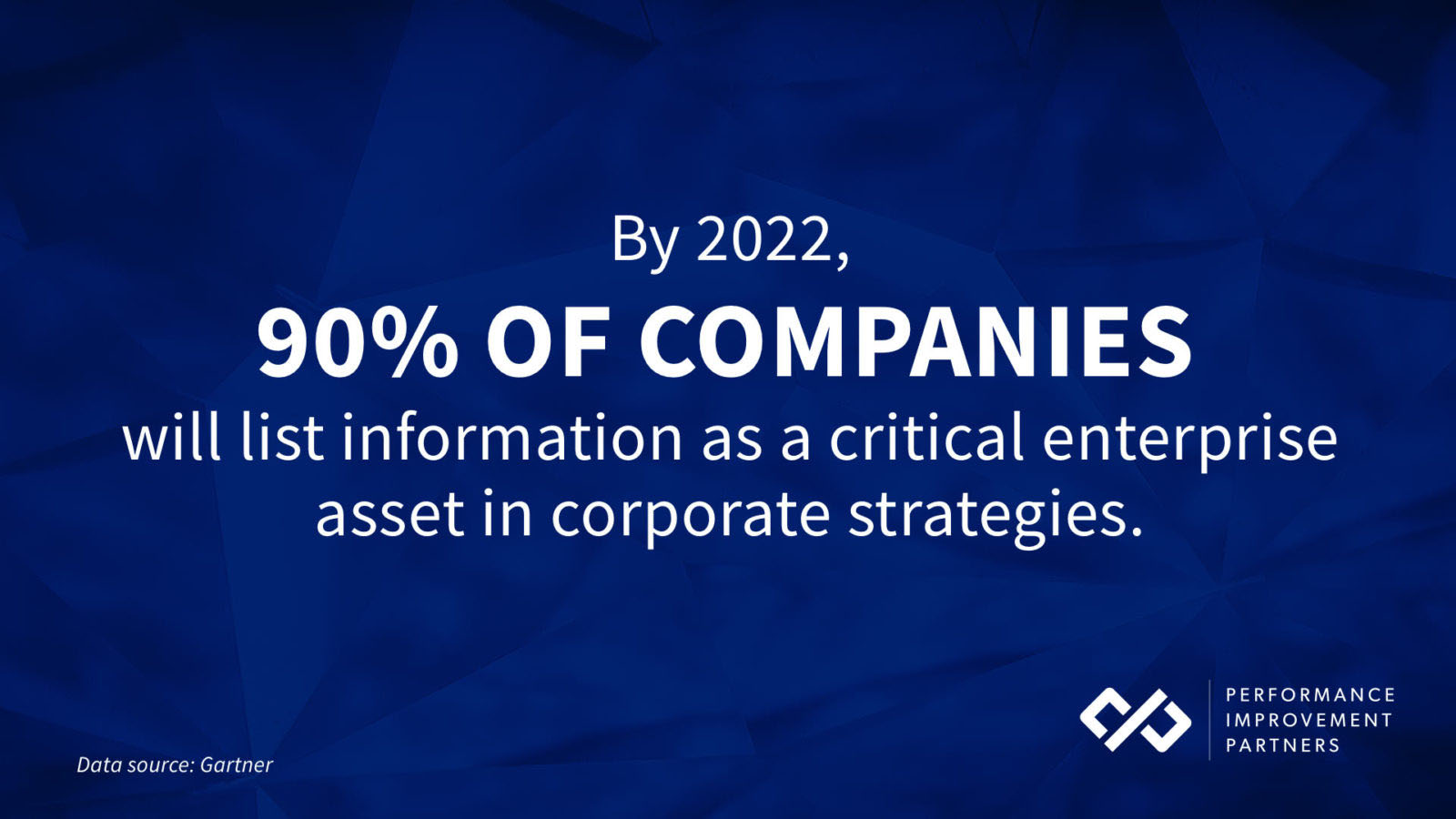
- Chief Data Officers (CDOs) are seeing increased responsibilities as they are now responsible for driving business outcomes with 80% of top KPIs used to measure their performance in these areas (Informatica)
- Nearly half (49%) of Fortune 1000 executives think that successful CDOs need to be external change agents offering fresh perspectives (NewVantage Partners)
- By 2023, most enterprise companies will store their data in public cloud warehouses such as Google Big Query and Amazon Redshift (Wikibon)
Data analytics and digital transformation are inescapably intertwined
- The data is only as good as the analysis and with 41% of Excel users stating spreadsheets alone cannot handle data volumes, digital transformation is key (IBM)
- By 2022, 9 in every 10 companies (90%) will list information as a critical enterprise asset (and analytics as an essential competency) in corporate strategies (Gartner)
- Chief Data Officers (CDOs) are seeing increased responsibilities as they are now responsible for driving business outcomes with 80% of top KPIs used to measure their performance in these areas (International Data Corporation)
- Nearly half (49%) of Fortune 1000 executives think that successful CDOs need to be external change agents offering fresh perspectives (NewVantage Partners)
- By 2023, most enterprise companies will store their data in public cloud warehouses such as Google Big Query and Amazon Redshift (Wikibon)
The benefits of data analytics can’t be denied
Without digital business transformation – and data analytics to fuel that transformation — businesses cannot meet and exceed their potential. The need to increase efficiencies, make informed decisions, and create a data-driven culture is critical in achieving business growth.
Technology is foundational to executing value creation plans. Don’t discount the data analytics available to you; business transformation that drives next-level value creation starts with data.

